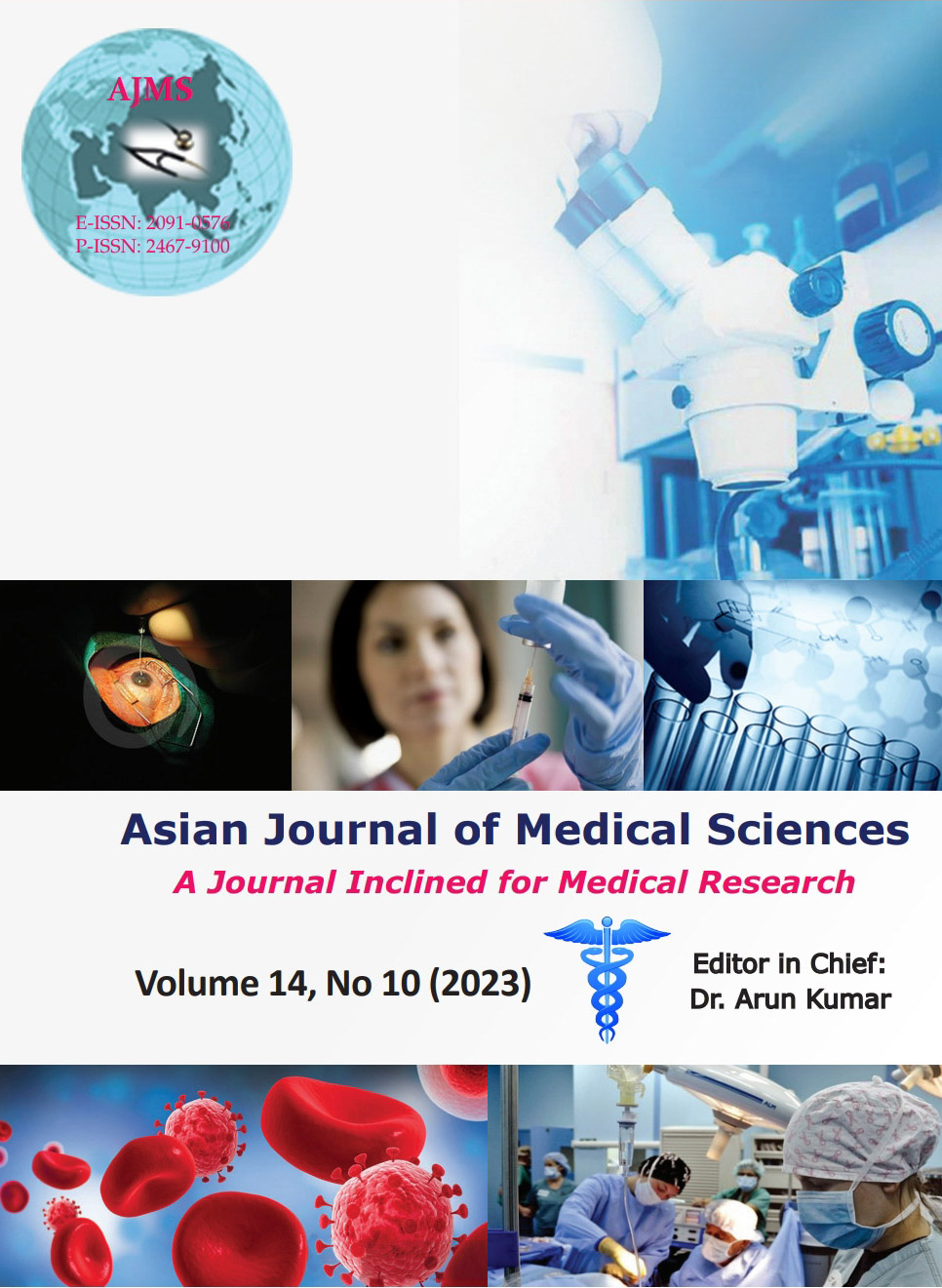Seroprevalence of human immunodeficiency virus infection among whole blood donors at Sheri Kashmir Institute of Medical Sciences, Soura Srinagar
Keywords:
Blood transfusion; Transfusion transmitted infections; SeroprevalenceAbstract
Background: Blood transfusion has become a specialized modality of patient management and every year saves the millions of lives. However, it is not always safe and may lead to many life threatening complications among which transfusion-transmitted infections (TTIs) such as hepatitis and human immunodeficiency virus (HIV) are most significant and detrimental for the recipients. Hence, an integrated strategy for blood safety is required for the elimination of TTIs and or provision of safe and adequate blood transfusion services to the people.
Aims and Objectives: To assess the seroprevalence of HIV infections among whole blood donors at Sheri Kashmir Institute of Medical Sciences (SKIMS), Soura, Srinagar.
Materials and Methods: This was a hospital-based study carried in the postgraduate department of blood transfusion and immunohematology SKIMS, Soura, Srinagar over a period of 7 years from January 2015 to December 2021. All donor samples were screened for HIV by the ELISA method.
Results: Overall, seroprevalence of HIV was found to be 0.013%. All the positive cases were male donors. Seroprevalence was the highest among replacement donors (0.011%) as compared to voluntary donors (0.001 %).
Conclusion: It is very important to continue the screening of donated blood with highly sensitive and specific tests and to counsel donors who are reactive to any of the infectious diseases (like HIV, hepatitis B virus, HCV, syphilis, or malaria) and conduct extensive public awareness programs and measures to make transfusion of blood and blood components safe.
Downloads
Downloads
Published
How to Cite
Issue
Section
License
Copyright (c) 2023 Asian Journal of Medical Sciences

This work is licensed under a Creative Commons Attribution-NonCommercial 4.0 International License.
Authors who publish with this journal agree to the following terms:
- The journal holds copyright and publishes the work under a Creative Commons CC-BY-NC license that permits use, distribution and reprduction in any medium, provided the original work is properly cited and is not used for commercial purposes. The journal should be recognised as the original publisher of this work.
- Authors are able to enter into separate, additional contractual arrangements for the non-exclusive distribution of the journal's published version of the work (e.g., post it to an institutional repository or publish it in a book), with an acknowledgement of its initial publication in this journal.
- Authors are permitted and encouraged to post their work online (e.g., in institutional repositories or on their website) prior to and during the submission process, as it can lead to productive exchanges, as well as earlier and greater citation of published work (See The Effect of Open Access).




